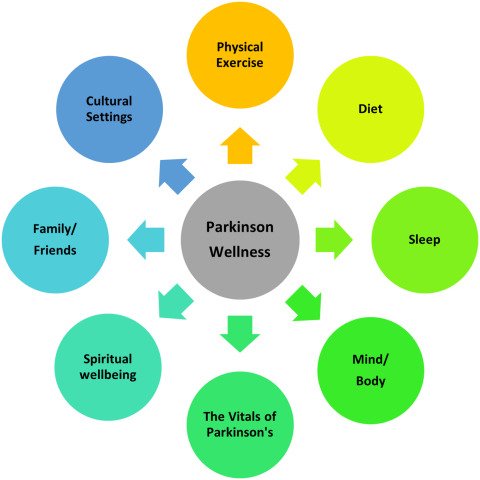Holistic health practices emphasize the interconnectedness of the mind, body, and spirit. By addressing all aspects of an individual’s well-being, these practices aim to promote optimal health and prevent illness. This comprehensive guide explores the principles, benefits, and various modalities of holistic health, providing insights into how they can enhance overall wellness.
What Is Holistic Health?
Holistic health is an approach to wellness that considers the whole person—body, mind, and spirit—in the quest for optimal health and wellness. Unlike conventional medicine, which often focuses on treating specific symptoms or diseases, holistic health emphasizes the importance of balance and harmony in all areas of life. This approach encourages individuals to take responsibility for their own health and well-being, recognizing the interconnectedness of all aspects of life.
Principles of Holistic Health
The core principles of holistic health include:
- Interconnectedness: Recognizing that all aspects of an individual—physical, emotional, mental, and spiritual—are interconnected and influence one another.
- Prevention: Focusing on preventing illness through lifestyle choices, rather than merely treating symptoms.
- Self-Responsibility: Encouraging individuals to take an active role in their health and wellness journey.
- Personalized Care: Tailoring health practices to the individual’s unique needs, preferences, and circumstances.
- Integration: Combining conventional medical treatments with alternative therapies to achieve comprehensive care.
Benefits of Holistic Health Practices
Engaging in holistic health practices can offer numerous benefits, including:
- Improved Physical Health: Regular practices like yoga, acupuncture, and massage therapy can enhance physical well-being.
- Enhanced Mental Clarity: Meditation and mindfulness techniques promote mental focus and clarity.
- Emotional Balance: Therapies such as counseling and art therapy help in processing emotions and achieving emotional stability.
- Spiritual Growth: Practices like prayer, meditation, and community involvement foster spiritual development.
- Increased Energy Levels: A balanced lifestyle leads to improved energy and vitality.
Common Holistic Health Practices
Several modalities are commonly used in holistic health, including:
- Yoga: Combines physical postures, breathing exercises, and meditation to promote overall health.
- Meditation: Involves focusing the mind to achieve a mentally clear and emotionally calm state.
- Acupuncture: A traditional Chinese medicine practice that involves inserting thin needles into specific points on the body.
- Massage Therapy: Manipulation of the body’s soft tissues to relieve tension and promote relaxation.
- Aromatherapy: The use of essential oils to improve physical and emotional health.
- Herbal Medicine: Utilizes plants and plant extracts for medicinal purposes.
- Nutritional Counseling: Provides guidance on dietary choices to support health and prevent disease.
- Chiropractic Care: Focuses on diagnosing and treating mechanical disorders of the musculoskeletal system.
Integrating Holistic Practices into Daily Life
Incorporating holistic practices into daily life can be simple and rewarding:
- Start with Small Changes: Begin by adding short meditation sessions or gentle yoga stretches to your routine.
- Stay Consistent: Regular practice yields the best results.
- Listen to Your Body: Pay attention to how your body responds to different practices and adjust accordingly.
- Seek Professional Guidance: Consult with holistic health practitioners to tailor practices to your individual needs.
Real-Life Example
Consider Sarah, a 35-year-old professional who struggled with chronic stress and fatigue. After incorporating yoga, meditation, and nutritional counseling into her daily routine, she noticed significant improvements in her energy levels and overall well-being. Sarah’s story illustrates the transformative power of holistic health practices when integrated into daily life.
Frequently Asked Questions (FAQs)
- What is holistic health?
Holistic health is an approach to wellness that considers the whole person—body, mind, and spirit—in the quest for optimal health and wellness. - How does holistic health differ from conventional medicine?
While conventional medicine focuses on treating specific symptoms or diseases, holistic health emphasizes the importance of balance and harmony in all areas of life. - Can holistic health practices replace traditional medical treatments?
Holistic practices can complement traditional treatments but should not replace them. It’s essential to consult with healthcare professionals before making changes to your treatment plan. - Are holistic health practices safe?
Most holistic practices are safe when performed correctly. However, it’s crucial to seek guidance from qualified practitioners and inform your healthcare provider of any new therapies. - How can I start incorporating holistic practices into my life?
Begin with small changes, such as adding short meditation sessions or gentle yoga stretches to your routine, and gradually build from there. - Do I need to be religious to practice holistic health?
No, holistic health is about balance and well-being and is not tied to any specific religious beliefs. - Are holistic health practices covered by insurance?
Coverage varies by insurance provider and plan. It’s advisable to check with your insurance company to determine coverage for specific holistic therapies. - Can children benefit from holistic health practices?
Yes, many holistic practices, such as yoga and meditation, can be adapted for children and can promote their overall well-being. - How do I find a qualified holistic health practitioner?
Look for practitioners who are certified and have experience in the specific modality you’re interested in. Personal referrals and online directories can be helpful resources. - Can holistic health practices help with chronic conditions?
Holistic practices can support the management of chronic conditions by promoting overall health and well-being. However, they should be used in conjunction with conventional medical treatments.
